Paul Hill finds out how the British Lion mark on eggs is giving foodservice wholesalers peace of mind when it comes to food safety
Health and safety has always been a key priority for foodservice wholesalers and the selling of eggs and egg products carries extra prominence in this area. There was a time when the safety of eating eggs brought a lot of negative attention to the public, with sales and confidence in the category down at an alarming rate.
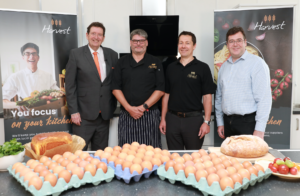 However, since its launch in 1998, the British Lion mark has effectively eradicated salmonella from UK eggs and, as a result, has given the wholesale industry the confidence in selling eggs to its foodservice outlet customers who then serve the UK public.
However, since its launch in 1998, the British Lion mark has effectively eradicated salmonella from UK eggs and, as a result, has given the wholesale industry the confidence in selling eggs to its foodservice outlet customers who then serve the UK public.
“The mark means the eggs and egg products
have been produced to the highest standards of food safety, which cover all systems and stages of production,” said independent food safety expert Sterling Crew, who was in Southampton at Harvest Fine Foods to discuss the legacy and importance of the Lion mark with the wholesaler.
“British Lion eggs can safely be served and eaten runny, or even raw, by vulnerable groups,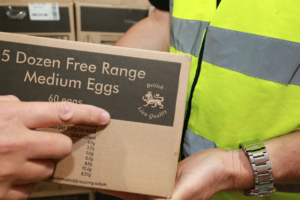 such as pregnant women, elderly people and infants. This gives foodservice wholesalers peace of mind when selling eggs to their customers,” explained Crew.
such as pregnant women, elderly people and infants. This gives foodservice wholesalers peace of mind when selling eggs to their customers,” explained Crew.
Steve Whitwam, commercial director at Harvest, added: “It’s fantastic to have Sterling here
today as well as representatives from British Lion eggs to find out more about what the mark means for food safety. It is a huge priority for us that not only do we sell the highest-quality products, but also the safest, to our customers.”
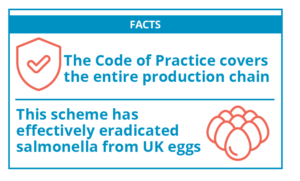 Meanwhile, Phil Clark, category development manager at Harvest, was able to cook up some poached Lion-marked eggs for those in attendance. He said: “At Harvest, we source our British Lion egg products from our buying group Country Range and then sell them onto foodservice outlets. The Lion mark allows you to create dishes with runny or softly cooked eggs, such as these poached ones, safe in the knowledge that the eggs have passed stringent tests.”
Meanwhile, Phil Clark, category development manager at Harvest, was able to cook up some poached Lion-marked eggs for those in attendance. He said: “At Harvest, we source our British Lion egg products from our buying group Country Range and then sell them onto foodservice outlets. The Lion mark allows you to create dishes with runny or softly cooked eggs, such as these poached ones, safe in the knowledge that the eggs have passed stringent tests.”
The Lion mark is also important for pasteurised eggs as well as shell eggs, and there is a  common misconception that non-UK processed eggs can offer similar guarantees of food safety to those produced within the British Lion scheme. “When you move away from the controls and guaranteed standards of the British Lion mark, the risk becomes greater,” added Crew.
common misconception that non-UK processed eggs can offer similar guarantees of food safety to those produced within the British Lion scheme. “When you move away from the controls and guaranteed standards of the British Lion mark, the risk becomes greater,” added Crew.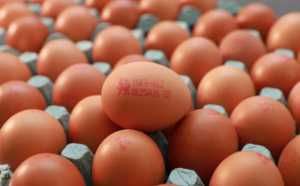
“There is also a further misunderstanding that pasteurised eggs are always safe. When, in fact, feed contamination, insecticide contamination and inadequate heat treatment have been linked to a number of food safety issues involving non-UK pasteurised egg in the past few years.”
Foodservice wholesalers should also be aware that the independently audited Lion code covers the entire production chain, incorporating food safety controls above those in current UK and EU legislation. It means that all British Lion eggs are laid in the UK by hens vaccinated against salmonella, which must be accompanied by a passport certificate, with all movement fully traceable.
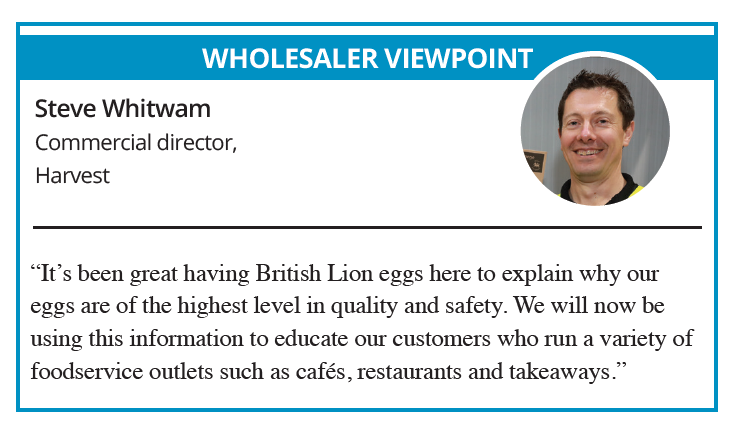
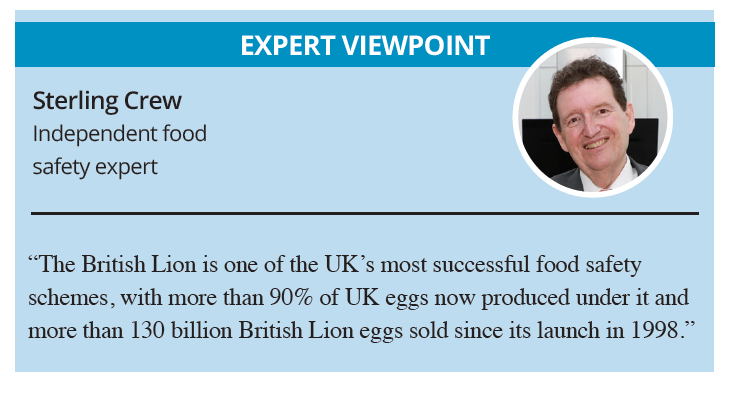
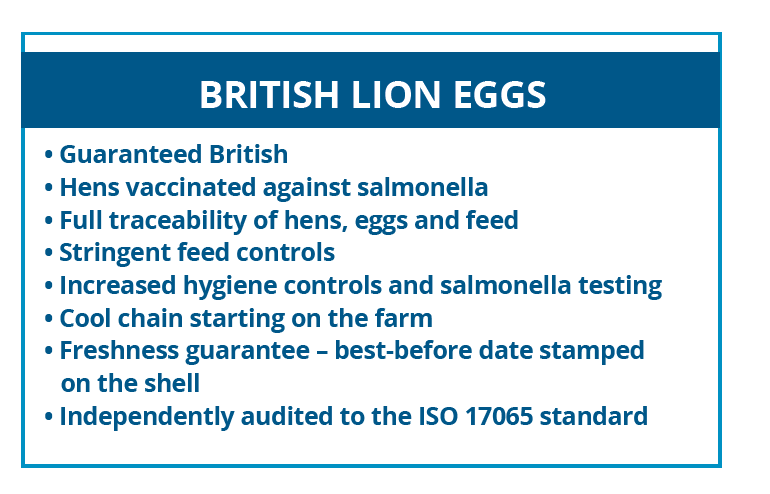
For further information, please contact: British Egg Industry Council, 22 City Road, London, EC1Y 2AJ. 0207 608 3760. egginfo.co.uk







